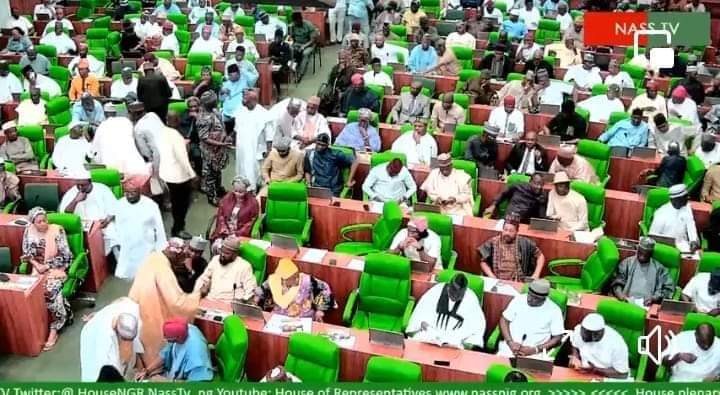The House of Representatives Committee on Federal Polytechnics and Higher Technical Education has committed to resolving the long-standing disparity between university degrees and Higher National Diplomas (HND) in Nigeria. The Committee assured stakeholders that it will work to eliminate inequalities in status and employment opportunities for graduates of both educational pathways.
Chairman of the Committee, Hon. Fuad Kayode Laguda, expressed this commitment during an oversight meeting with the Rectors of Federal Polytechnic Shendam and Federal Polytechnic Wannune at the National Assembly Complex. Laguda revealed that various proposed bills are being considered to address challenges faced by polytechnics in Nigeria, with an aim to bolster these institutions’ capacity to deliver the professional and technical expertise needed for national development.
The meeting provided an opportunity for the Committee to assess budget performance, identify challenges within the institutions, and determine the support needed to enhance their operational effectiveness. “As we prepare for the 2025 budget, it’s essential to review the performance of the current and previous budgets to understand each institution’s unique challenges and requirements,” Laguda noted.
Challenges Facing New Polytechnics
Dr. Mikaila Zakari Yau, Rector of Federal Polytechnic Shendam, highlighted the struggles of the institution since its establishment in 2021. He explained that, lacking a dedicated site, the polytechnic began operations in a primary school building within the community. The institution received a ₦2 billion take-off grant from the Tertiary Education Trust Fund (TETFund), part of which was allocated to secure essential facilities, including a water tanker and renovations to the primary school for its initial operations.
Dr. Yau mentioned that although there was no take-off grant from the Federal Ministry of Education, regular budget allocations have enabled the polytechnic to undertake some capital projects. However, the Committee raised concerns over the institution’s low enrollment, noting it has only 27 students after three years of operation, despite employing 245 staff.
Committee members requested transparency on the spending of the initial grant. “You mentioned only the ₦2 billion take-off grant. What about other grants? We need to see how those funds were utilized, including the outcomes and beneficiaries,” a member remarked.
Concerns Over Low Enrollment
The Committee further questioned the institution’s low enrollment numbers. “For three years, you’ve only admitted 27 students, and despite the facility challenges you mentioned, this number is concerning. We need to understand what actions were taken during the past two years,” another Committee member added.
Federal Polytechnic Wannune’s Progress
Dr. Tyover Ashinya, Rector of Federal Polytechnic Wannune, reported a more favorable situation, with close to 1,000 students currently enrolled. Established in 2021, the polytechnic has utilized its take-off grant for critical infrastructure, including administrative and academic blocks and classrooms. The Committee, however, pointed out certain missing details in both institutions’ presentations, such as employment adherence to federal character and other essential documentation.
Committee Demands Comprehensive Reports
The Committee has directed both institutions to revise their presentations, giving them five working days to submit updated and detailed reports, including relevant photos and compliance documentation. “We need accurate information to avoid any misrepresentation. We urge you to resubmit with a comprehensive report that addresses all these issues,” Laguda concluded.
